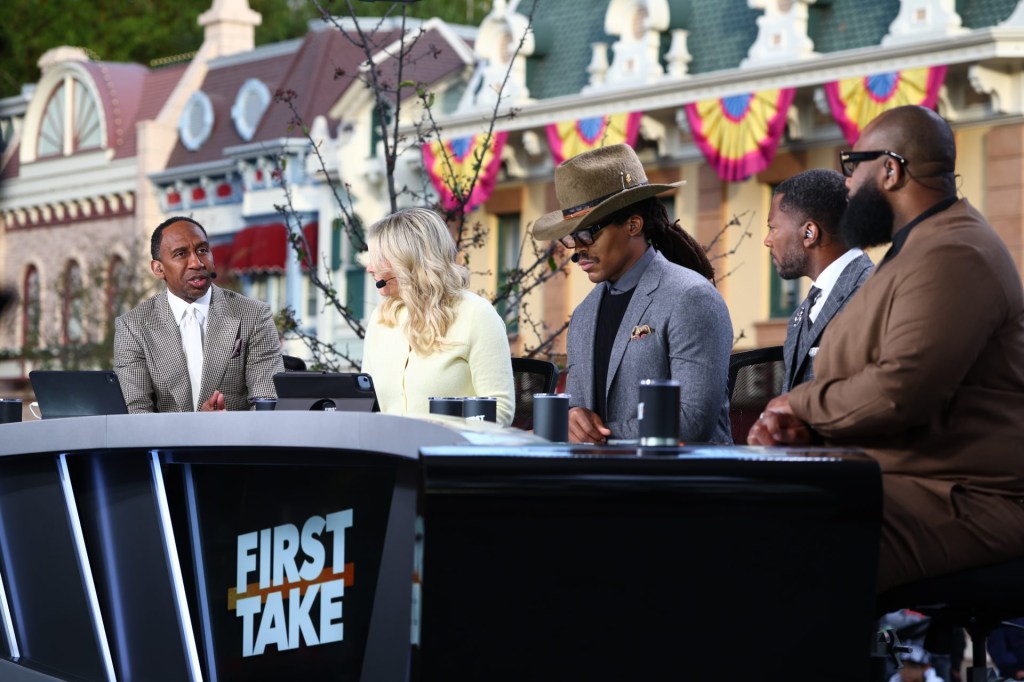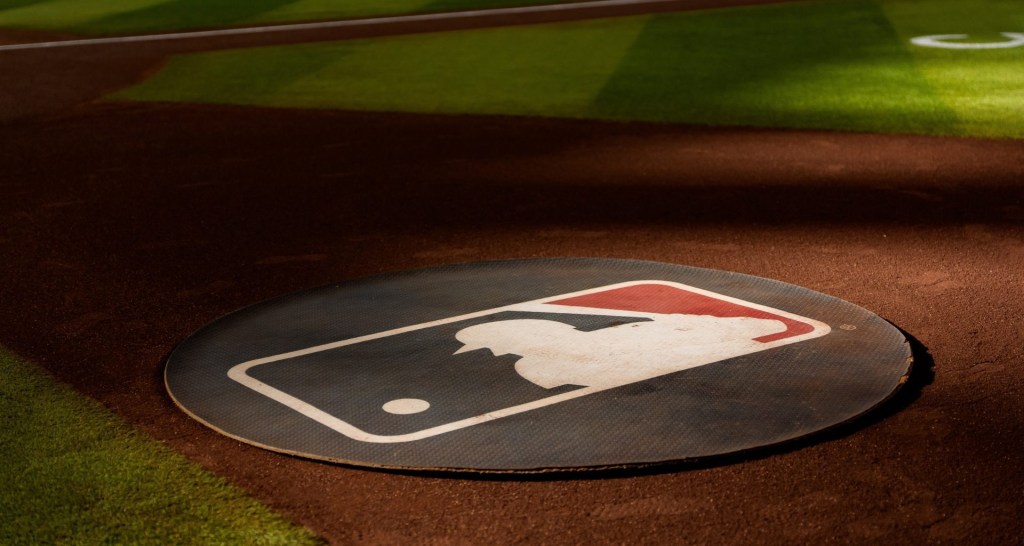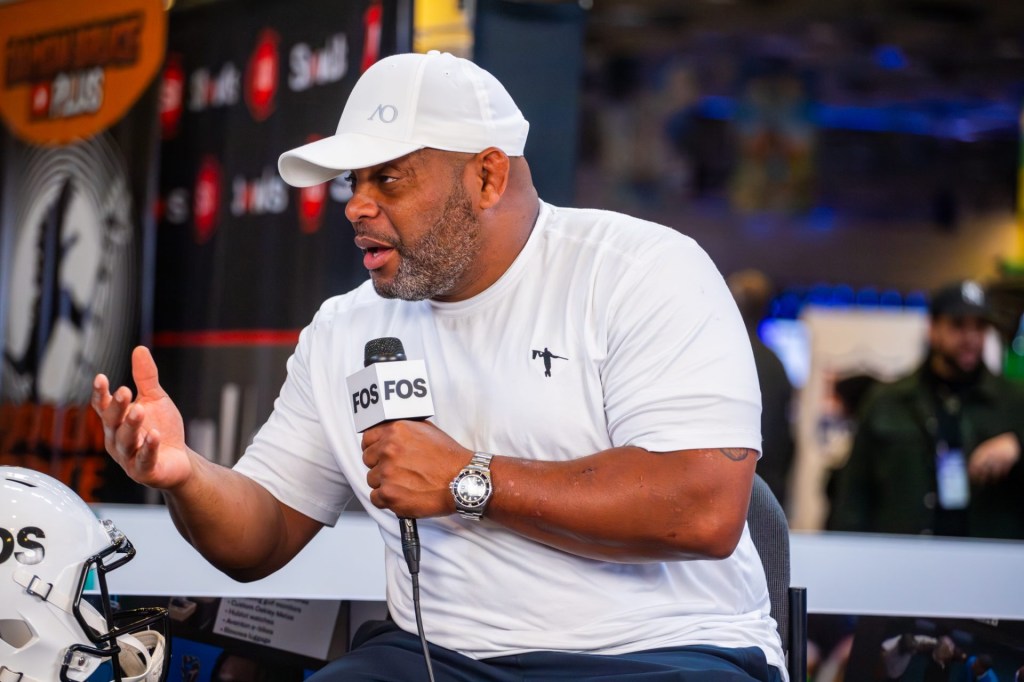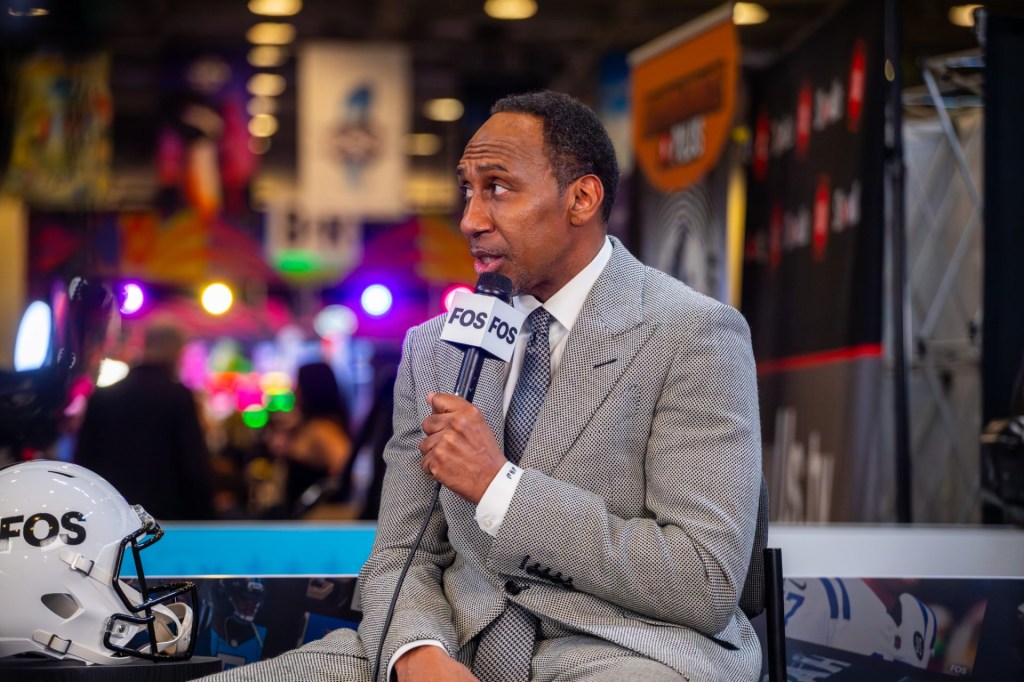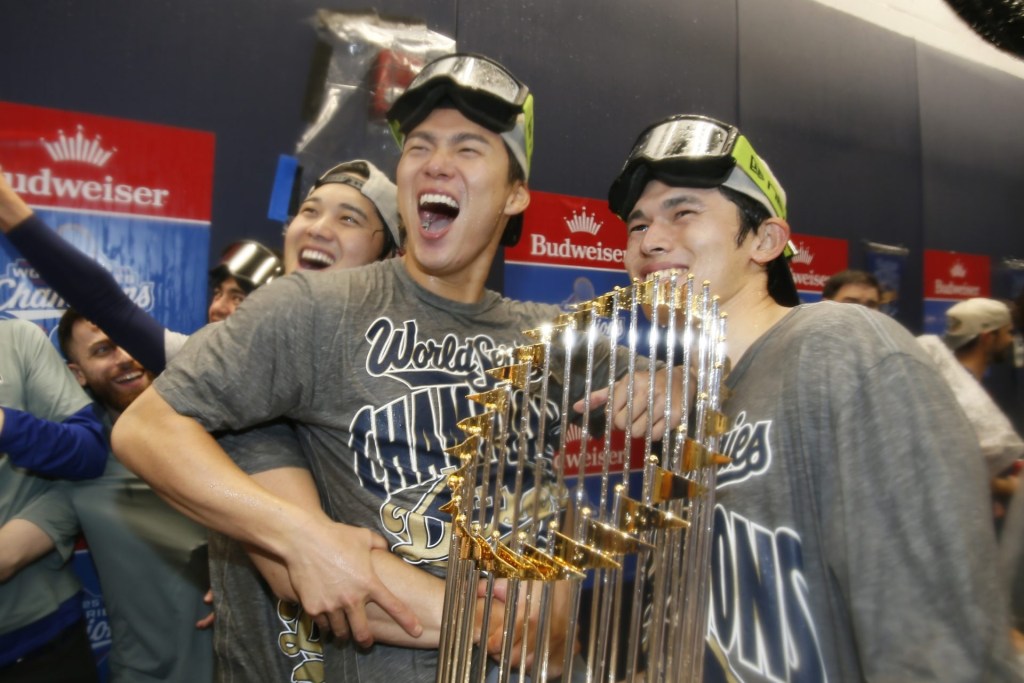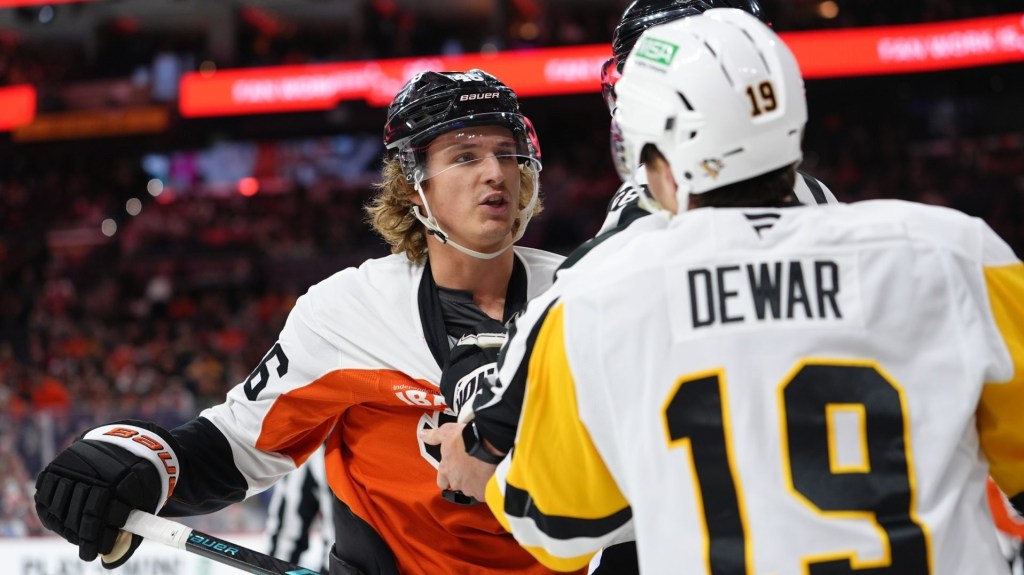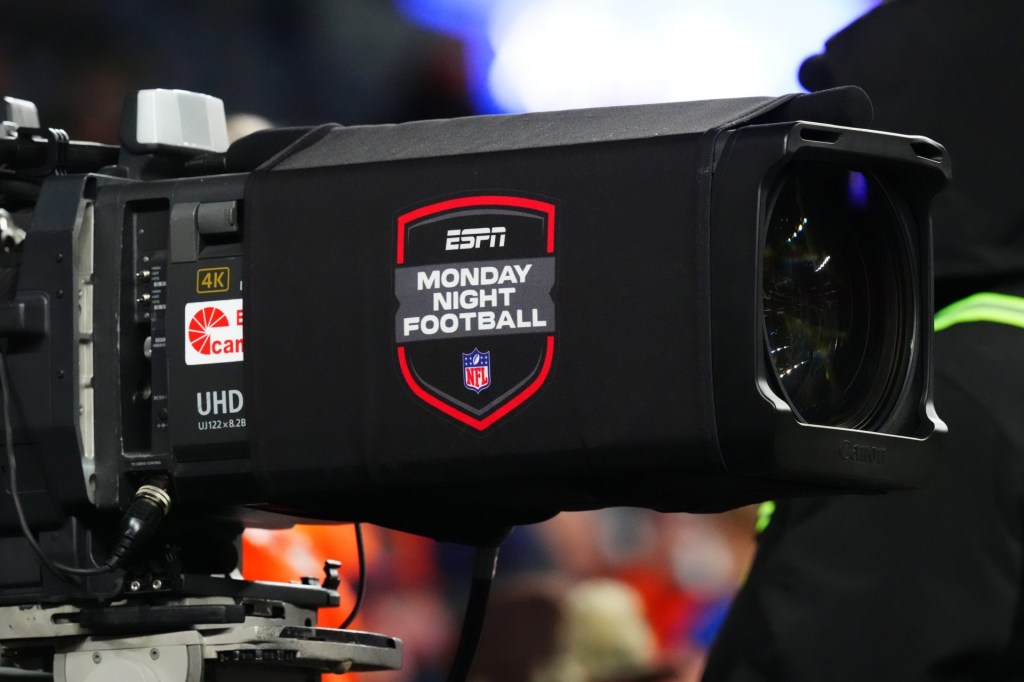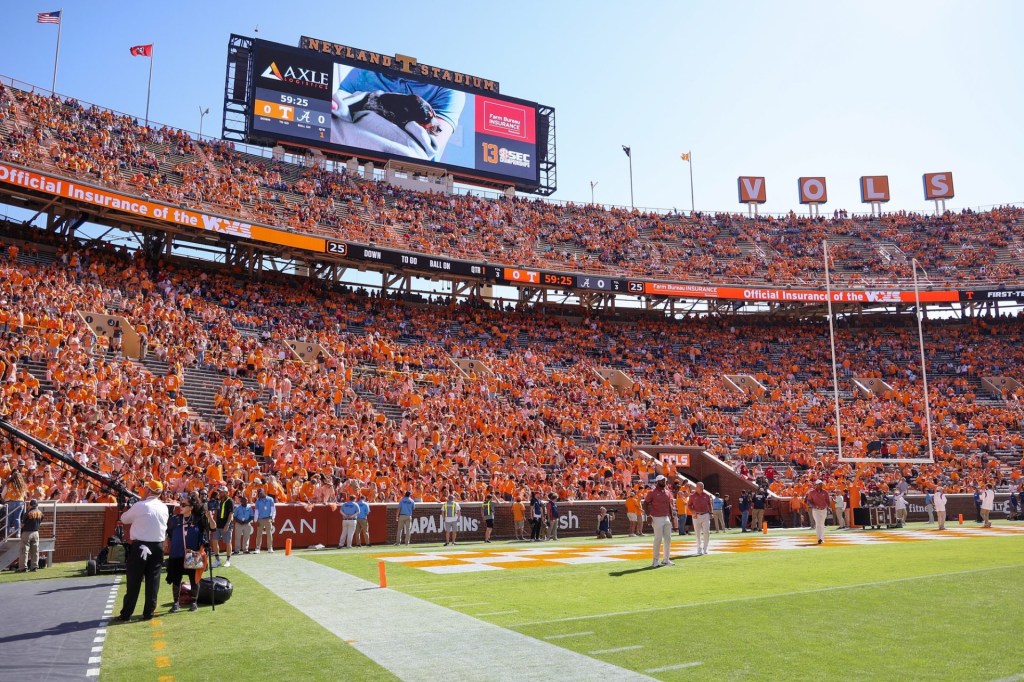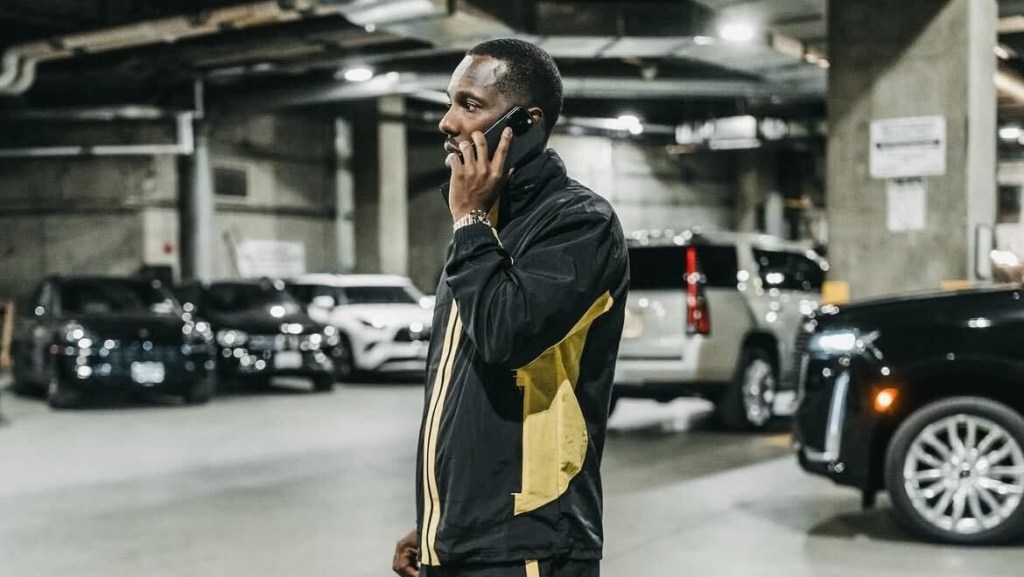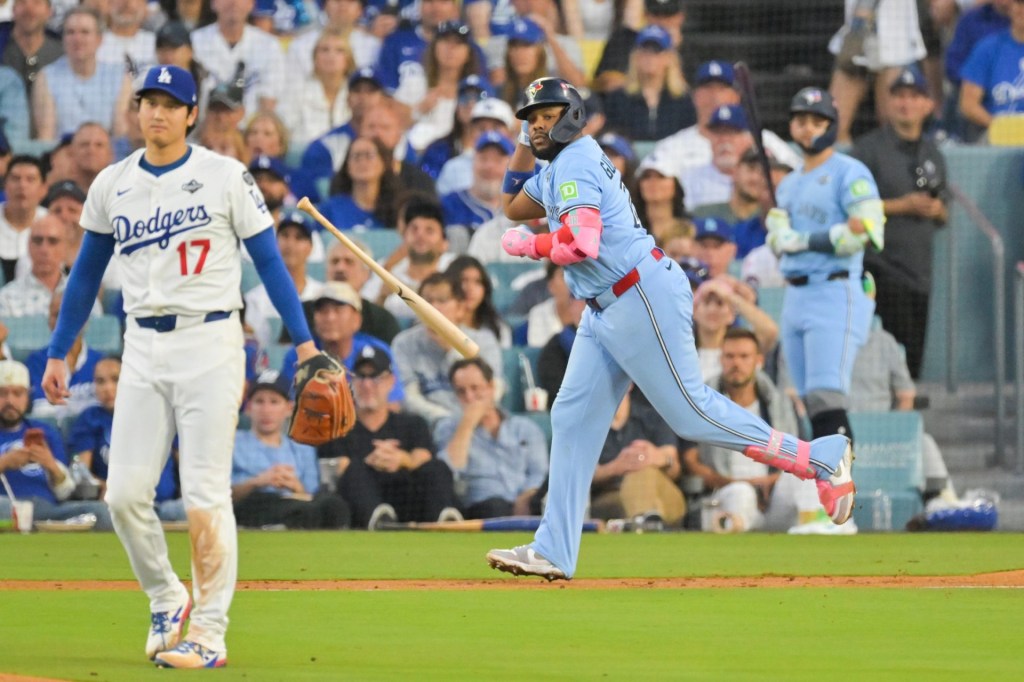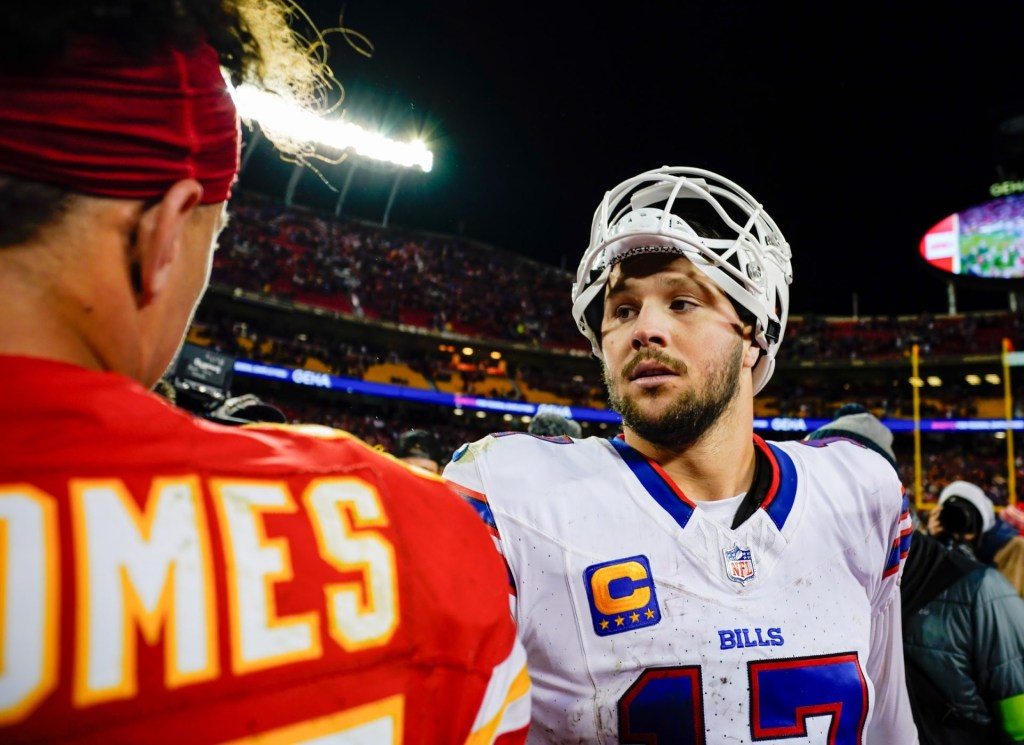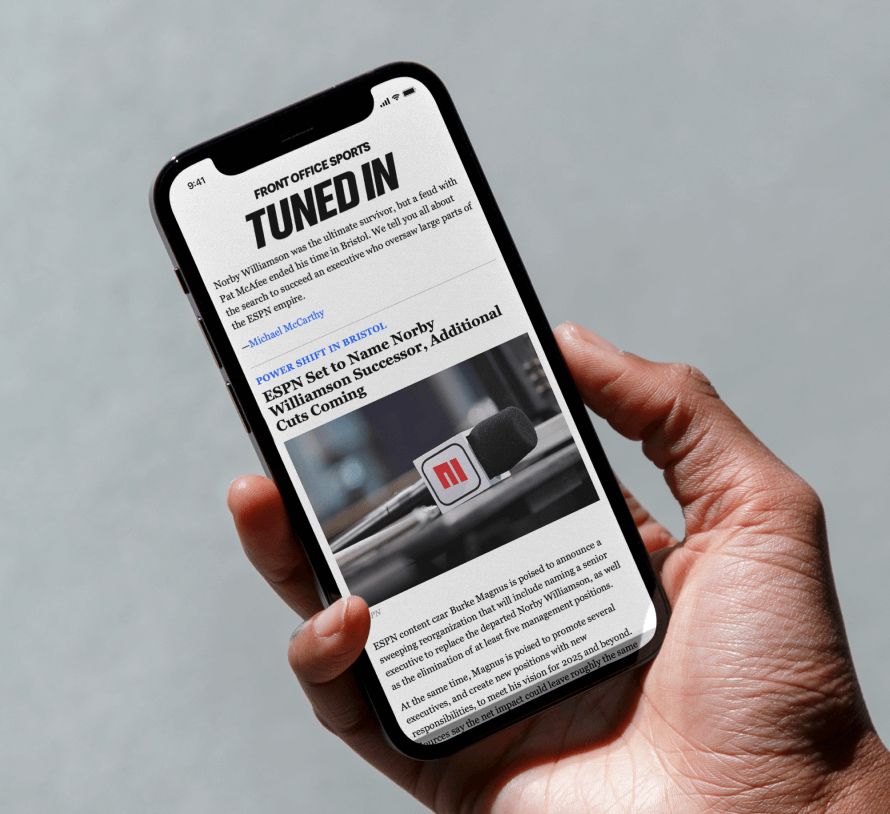Jim Gray has occupied a ringside seat to sports history for decades. He’s hosted the 2010 LeBron James TV special “The Decision,” grilled Pete Rose about gambling during the 1999 World Series, and served as ESPN’s sideline reporter for the infamous “Malice at the Palace” NBA brawl in 2004.
Gray and Tom Brady are teaming up to open the Hall of Excellence sports museum at the Fontainebleau Las Vegas on June 20. Visitors—led by a self-guided tour narrated by Oscar winner Morgan Freeman—will be able to see all seven of Brady’s Super Bowl rings, Michael Jordan’s first Air Jordans from 1984, the bat used by Jackie Robinson to break baseball’s color barrier, a golf ball used by Tiger Woods during his historic Masters win in 1997, and other sports artifacts from the 20th and 21st centuries. Famous sports TV voices like Jim Nantz, Marv Albert, Bob Costas, Mary Carillo, and Doc Emrick will also describe the 300-plus mementos if visitors want to get more than Freeman’s narration.
Front Office Sports interviewed the 12-time Emmy Award–winner about his new venture with Brady—and the highs and lows of his sports media career:
Front Office Sports: What were the craziest events you covered? Malice at the Palace? Mike Tyson vs. Evander Holyfield [where Tyson bit off a piece of Holyfield’s ears]?
Jim Gray: Those would be a couple of the craziest, yes. Also, Ben Johnson [winning] on steroids [at the 1988 Seoul Olympics] … I’m proud of the Tyson ear-biting because that’s never happened before and is never going to happen again. And I didn’t screw it up.
FOS: How about your favorite career moments?
JG: Muhammad Ali lighting the torch [at the 1996 Atlanta Olympic Games]. And [President George W.] Bush throwing out the first pitch [at the 2001 World Series in the wake of the 09/11 terror attacks]. Those were great, great moments that will never be forgotten for all the right reasons … It took 14 years to convince President Bush to do the documentary. But I got him to do it with the First Pitch 30 for 30. That was just a mesmerizing moment. There was nothing political about it. He made the decision, much like FDR had made, we’re going to play baseball. We’re going to grieve. We’re not going to ever forget what happened…But we’re trying to have some little bit of normalcy in our day. That took a lot of courage. Standing out there by himself at a time when anthrax was being passed around, and everybody was thinking there was going to be another terrorist attack. It was just a great moment. Probably the only better I’ve seen was Ali at the Opening Ceremonies that night when he lit the torch. By the way, we have the torch that lit the torch.
FOS: Any instances where you would want a do-over? I’m thinking of the criticism you took for “The Decision?”
JG: I could have done better that night. I could have explained why we were there, for the Boys & Girls Club [of America]. That we were giving away $6.5 million that evening—still the largest contribution to the Boys & Girls Club—that changed the lives of thousands of kids. I could have explained that better. Had I explained that better, then people would have understood the backdrop. Could we have all done better on that evening? Yes, but I look at that as the ultimate player empowerment. That was the Curt Flood moment for professional basketball and professional athletes. You look back now, at how that has changed everything, it was a seminal moment. So I’m proud of it. Doesn’t mean I couldn’t have done better. But if you look at what that has done to all of these guys, across all the spectrum of sports, particularly the NBA. That was a big moment that changed a lot for everybody. They can all thank LeBron for making their lives a lot better.
He’s supposed to suffer because he wants to change teams? It’s ridiculous. It’s a ridiculous premise. What’s the difference between that and somebody standing on a podium and having a press conference? The fact that perhaps the Cleveland Cavaliers were not alerted until the last moment? … It wasn’t my decision; it was LeBron’s. Everybody felt bad for those fans. But LeBron went back, made it up to them, and won a championship there.
FOS: By the same token, you took a lot of heat for “ambushing” Rose about gambling on baseball. Turns out he lied before finally coming clean. Did you get a raw deal?
JG: Again, could things have [been] done better? During Talking to Goats, Pete came and did an interview with me all those years later, 20 years later, when the book came out. From my perspective, the line of questioning, I don’t apologize for. I never did … I should have been watching the television. Had I been watching television, then perhaps the tone might have been a little different with Pete. Maybe not the line of questioning, but to start right off with that, when everybody else was feeling good about what they just saw. But in terms of what the content was? The content was right. Pete missed an opportunity. He later admitted to it. He later did the interview with me and said he was trapped by his lying. Because he was to admit it, then he had already signed his banishment, and he would have just further acknowledged and been pushed further away. So he had to keep going down the path of, ‘I didn’t do it.”…But I said the entire time that I always thought we don’t live in the Soviet Union. You don’t erase a man’s records. OK? He should have consideration for the Baseball Hall of Fame based on his accomplishments. But those accomplishments will always be tainted. The plaque should acknowledge that he was banned from baseball because of gambling.
FOS: What/s the business strategy for you and Brady with the Hall of Excellence?
JG: It’s been a long time coming. Probably been seven, eight years since we first started talking about it. Now it’s finally coming to fruition. We tried to get all of this stuff so people will come, and be inspired, and educate them and entertain them. A lot of guys have this stuff in safe-deposit boxes or they put them at auction. We’re just trying to get everybody to come and see, and relive those great moments, and teach those moments. The fans shared in all this when it happened. So now there’s a chance to see some of the best ever displayed.
FOS: These types of trophies and artifacts are usually housed in sports Hall of Fames. How’d you get them?
JG: Tom and I own a large percentage of it. We worked with all these athletes. They loan it to us for display. So you can come and see some of these great things that we don’t own. We also have several arrangements with other sports Hall of Fames … We’re not trying to replace them in any way. They tell their stories—and the histories of their sports. We’re just having slivers of every sport. Folks have been great. There’s something for everybody here. From every era, from every sport, from every walk of life. There’s even Elvis Presley’s first suit that he wore the day he signed the first residency [in 1969] in Las Vegas over at the International Hotel, which is across the street from the Fontainbleau … We tried to have a trophy from everything that’s competed for in life that was humanly possible—or big enough to get.
FOS: Has Sin City become the new sports capital?
JG: When the Raiders moved here and got the stadium built, Allegiant Stadium, that just opened the door to make this the town that it is. The Super Bowl was here, and will be back at some point. The Final Four’s coming here [in 2028]. All the big fights still come here. The Stanley Cup. They won a Stanley Cup with the [Golden] Knights. The [Las Vegas] Aces. When Mark Davis bought the Aces, there were 1,200 people in the stadium. Now they’ve won two [WNBA] championships the last few years. You can’t get a ticket. It’s sold out every night. So there’s something to what you say. It’s a place that everybody wants to come. If you’re in Detroit, Buffalo, New York, Pittsburgh, or any of these cities, it’s a destination because you can get out of winter and come here. There’s always an appeal to come to Las Vegas.
FOS: How do you think Michael Jordan will do on TV with NBC Sports?
JG: I do think it’s Michael Jordan. Whatever he wants to say, and however he wants to say it, we’re all going to listen…I don’t know exactly what the role is, or what the parameters are, I just know it will be great to hear from him and great to see him. He’s Michael Jordan. We all love Michael Jordan. We all love what he did for the game of basketball, and how he played, and all the thrills we had watching him. He’s one of the few people in life who are totally captivating. So I can’t wait.
FOS: Is your Let’s Go podcast coming back this fall? Who will be on the mic with you?
JG: We’re still Let’s Going. Same configuration as last year. Me, Bill [Belichick], Maxx [Crosby], Peter King—and guest appearances by Tom.

